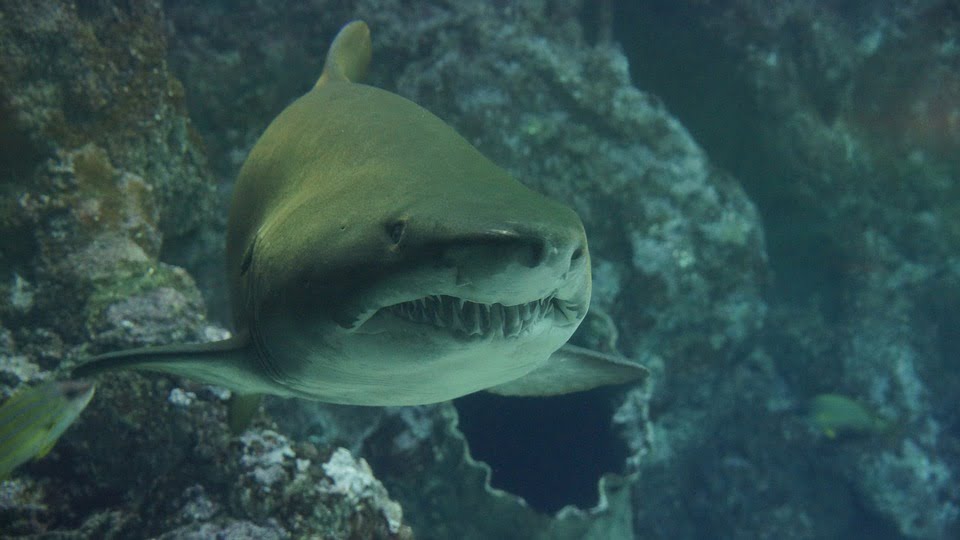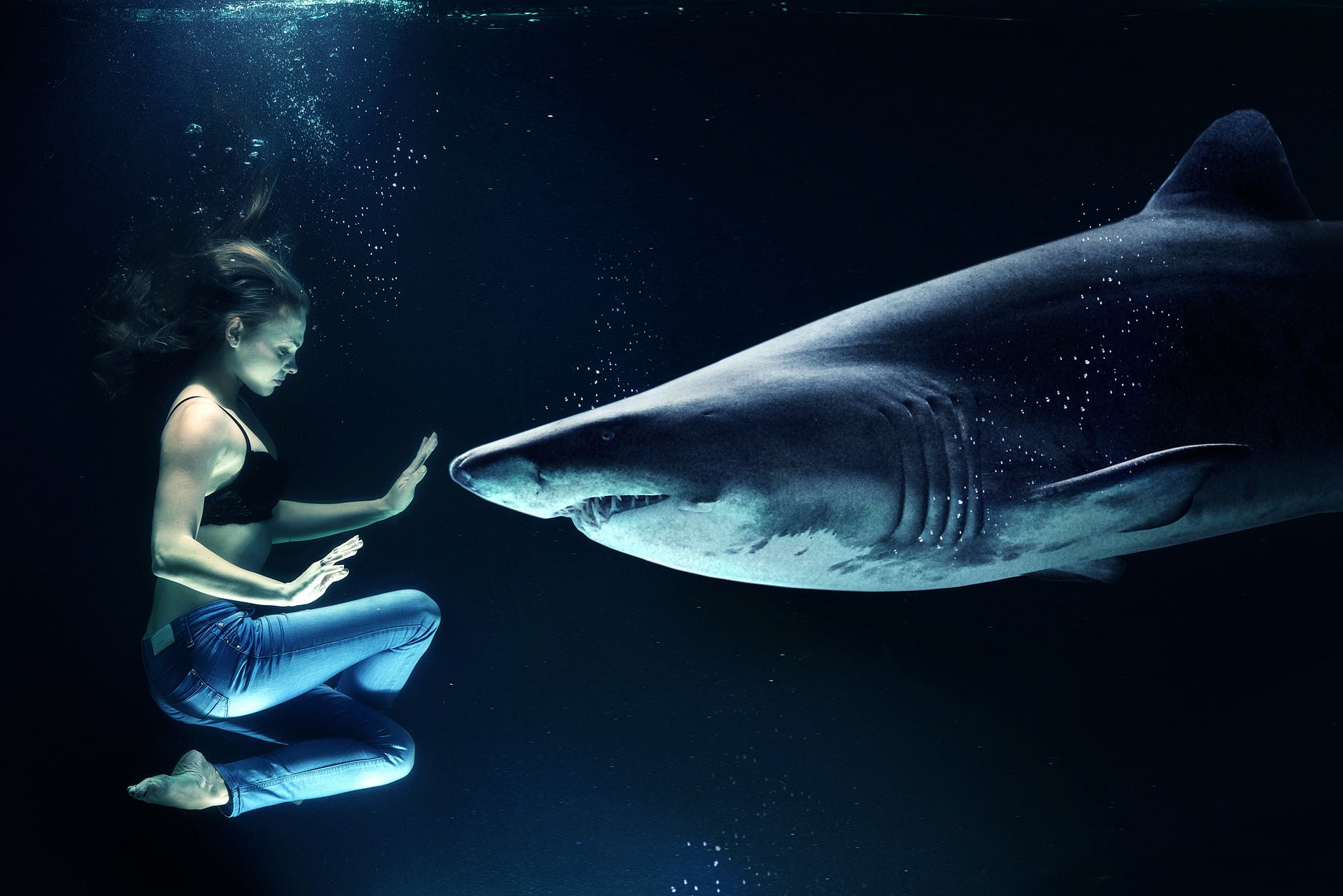Despite the reputation of sharks as monsters that prey on people, there is an opinion that they are actually not that dangerous to us. We decided to check if this is really true.
The media writes that sharks do not eat people (for example, Gazeta.ru And The Guardian), portals travel bloggers "Peekaboo" And "Yandex.Zene". Some popular science sites They explain this by saying that sharks simply don’t like the taste of human meat. There is a mention of this fact in fiction. literature.
In 1975, director Steven Spielberg made a horror film "Jaws" about killer sharks attacking people. It became a cult classic and spawned many sequels, as well as a phobia of sharks among millions of viewers. But are these animals really so cruel and bloodthirsty?
By data According to the Florida Museum of Natural History, there were only 71 shark attacks on humans worldwide in 2021, and only nine of those resulted in death. Moreover, this is one of the highest indicators over the last ten years - in 2019, for example, there were only two such cases. If compare the number of human deaths as a result of shark attacks with deaths from dog bites, then aggressive dogs “lead” with an advantage of several times (and in some years, several dozen times).
In Australia and the USA (and it is in these regions that clashes between people and sharks most often occur), scientists and officials in general ask avoid words like “attack” in reports of such incidents, suggesting that they be replaced by “incidents” or “accidents”, as they believe this more accurately conveys the essence of what is happening and helps avoid inciting panic. Scientists claim, that only a small part of what is commonly called a “shark attack” actually is one.
But even if a shark does show aggression, it is extremely rare that it ends in serious injury - primarily because not all sharks are as huge as in horror films. There are, for example, wobbegongs, carpet sharks that live on the bottom and are very easy to step on. Of course, she may respond by biting, just as a cat whose tail has been stepped on would bite. Since wobbegongs are on average only about a meter long, most likely the consequences of this bite will not be much more serious than from a cat bite, and nevertheless it will also be classified as a shark attack on a person.

British naturalist and biologist Kevin Morgan calls There are several reasons that can lead to a shark attack, and none of them relate to hunting for food. The most common reasons are provocation on the part of the person himself and curiosity on the part of the animal. After all, a shark has no hands, and if it wants to explore something, it does it with its teeth. Professor Nathan Hart, Head of the Department of Biological Sciences, Macquarie University, believesthat the reason for shark attacks on humans may be the poor eyesight of these animals. They simply do not understand what is in front of them, confuse people with the marine mammals they feed on (for example, fur seals), and can take a test bite, so to speak. Having realized that the taste and sensory sensations are not the same, the shark usually releases the prey and swims away. Of course, we must understand that this very test bite can also cause serious harm to a person and even lead to death.
Hart's opinion is confirmed by his colleague Laura Ryan. She spent study and found out that through the water, surfers floating on a board look just like seals or fur seals to sharks with their black-and-white blurry vision. It is in this case, according to Ryan, that a shark can attack a person - simply by mistake. At the same time, scientists note: Research into the effects of shark bites suggests that when attacking marine mammals, sharks use much more force than when biting people. This indicates the exploratory nature of the contact on their part rather than an attempt to kill.
We already sorted it out a common myth that sharks can smell human blood from several kilometers away, swim and attack, and found out that this is a fake. There are many videos on YouTube of divers experimenting with making a cut on their arm while surrounded by sharks, and none of them show the slightest interest.
US National Ocean Service too believesthat people are not suitable food for sharks. This is explained by the fact that the evolution of these animals was completed long before the appearance of humans, respectively, and their diet was determined many thousands of years before they could taste human meat. Most sharks generally feed only on small fish and invertebrates, and only the largest of them hunt larger game (for example, fur seals and seals). A group of scientists from Australia found outthat hard skin and bones can actually cause harm to sharks - especially for young individuals.
Thus, sharks are not at all as dangerous and aggressive as is commonly believed. Yes, they sometimes attack people, but this happens extremely rarely and even more rarely ends in death - precisely because sharks do not eat people.
By the way, the writer Peter Benchley, whose novel formed the basis of the film “Jaws,” subsequently regretted that he played such a significant role in discrediting sharks and creating an image of them as ruthless predators. At the end of his life, he was actively involved in protecting these sea creatures and even wrote a book Shark Trouble, which explores how sometimes the pursuit of sensation can endanger an entire marine ecosystem. World Wildlife Fund insiststhat sharks are much less dangerous to us than we are to them. Humans kill millions of these marine animals every year to satisfy the demand for their fins, shark oil and other carcass parts. Meanwhile, sharks are an important part of the marine ecosystem.
Mostly true
Read on the topic:
- 10 facts: how to survive a shark attack
- WWF about sharks
- Risk of death from shark attack comparedAnd with other risks
If you find a spelling or grammatical error, please let us know by highlighting the error text and clicking Ctrl+Enter.






